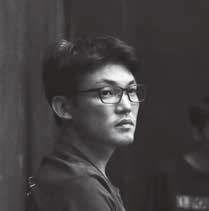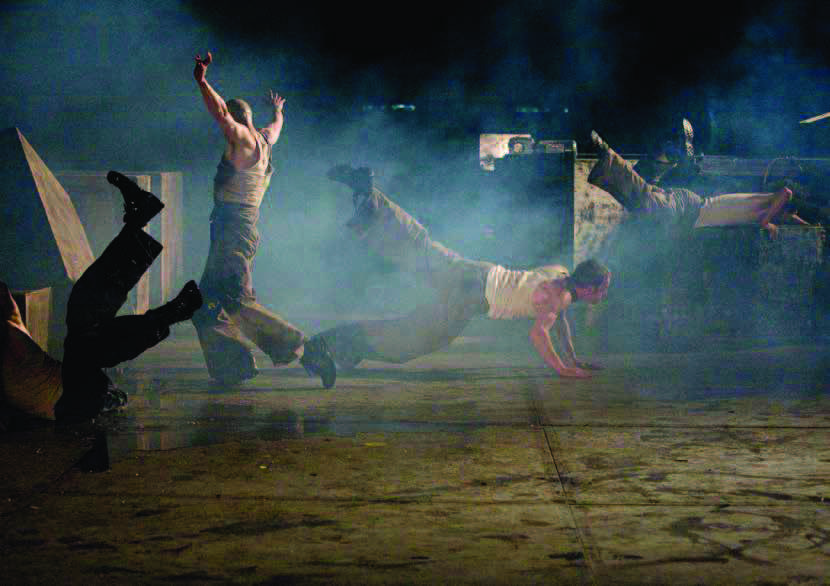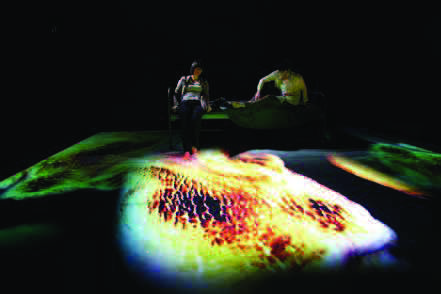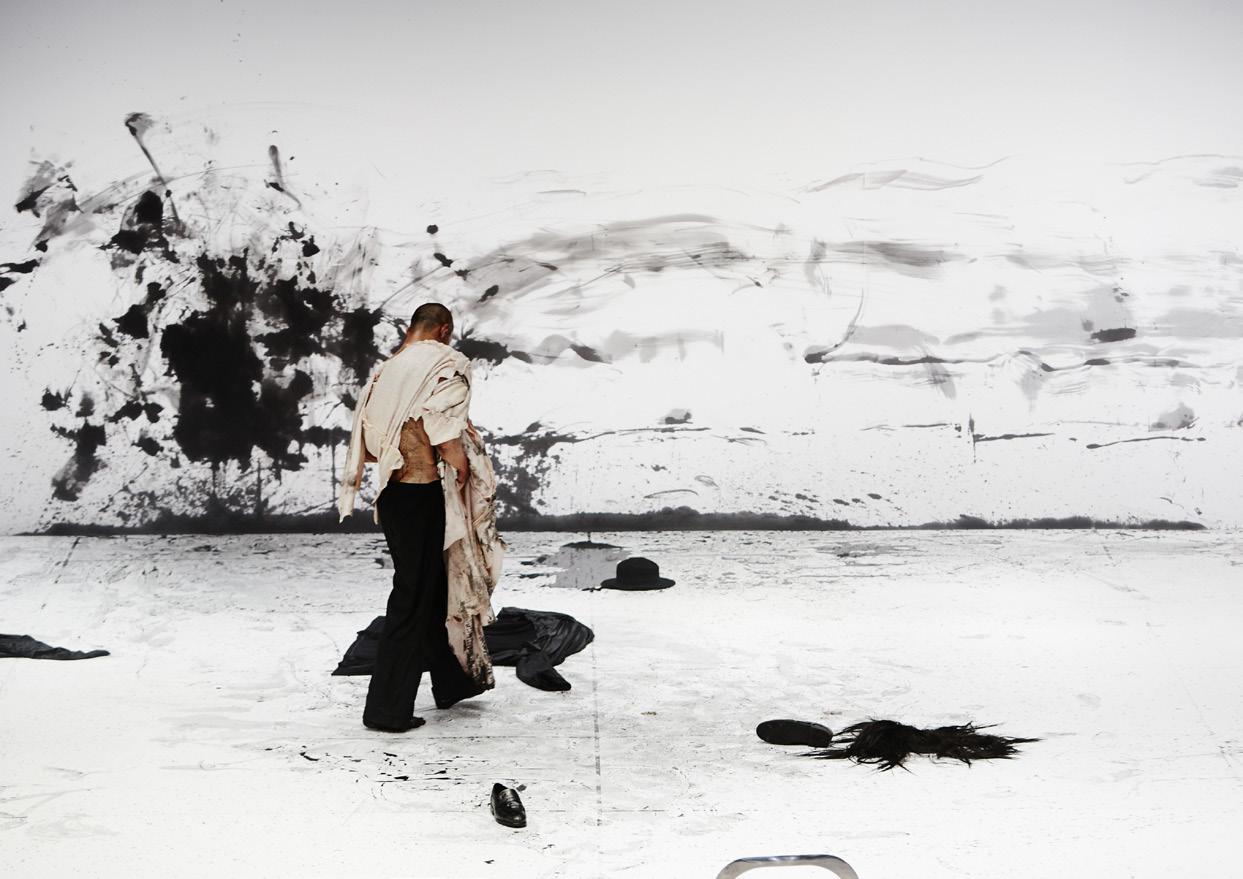Performance Info
YOON Jong Yeon (Actor, playwright, theatre director and festival director, Director of Theatre Momggol.)
: Body, everyday life, street, festival
How was your first encounter with theatre?
I first experienced the genre of performance at a festival. Performing arts festivals in the early 2000s were almost the only platform on which young artists could showcase a new type of work. What I saw at the Chuncheon International Mime Festival was a performance blending diverse materials that are not texts. Since then, I have focused on new language and grammar of movement of performance in my work.
Theatre Momggol was founded in 2003. In the beginning, we discovered theatricality in the process that the objects including the memories were changed and employed. But in our recent work, diverse objects are not used as a tool, but are felt and experienced through the bodies of the performers or in ordinary scenes of everyday life in different ways.
Many of your earlier small theatre works were physical theatre pieces with a focus on labor and poverty. What do you think your signature piece is?
With Handcart, Overturned (2006), Momggol started to become known to the public. It demonstrates the realities of labor in the times people had to work in order to overcome poverty and of exclusion from labor as well as of exploitative labor practices behind a great responsibility through the body, alongside the function of play that handcarts have brought in to the performance.
Later, as our troupe settled in Mullae-dong, Seoul, my personal life began to be reflected more in my work. Mullae-dong is currently known as a hub of arts with many people and infrastructures gathering due to opening of Mullae Art Space established by Seoul Foundation for Arts and Culture. But when we first came here, it was just a small industrial area on the outskirts of Seoul with many small factories. While meeting the residents and workers in Mullae-dong through the plays, I became motivated to express their daily life that is more dramatic than in dramas and the tension of reality onstage.
Starved Rest (2009) that premiered in 2009 is more of my favorite piece than a signature work. It portrays the relationship between the two characters isolated from each other, while living in the same space but in a different time, and expresses their ordinary life on the minimalist stage with the bodies of the two performers only. The two keep asking diverse questions to each other in their lonely everyday life, searching for the exit continuously. This work feels more meaningful to me because I focus on the tension that inheres in the peaceful and ordinary routine of life these days.
As street arts festivals have grown and become popular since 2010, our works characterized by physical theatre have attracted more public attention. Among our large-scale open-air performances, commissioned by a number of festivals, are Kudo (2007), Bad Impulse (2015) and The Grave Faraway (2016).
As I remember, Kudo is almost the first large-scale open-air performance created through international collaboration. You are in the vanguard of street arts artists taking part in international collaboration.
We have given a number of performances abroad with Handcart, Overturned. For me as well as the troupe, Kudo was the first piece created on the basis of international collaboration. Kudo shows a lonely journey of life like a monk seeking the truth through penance, using conveyor belts, different sized boxes along with the bodies of the performers in collaboration with ’LUNATICS’, a Dutch street theatre company.
I have also collaborated with the Thai theatre company B-Floor since 2015. In spite of different political situations in both countries, we have been working on a long-term project based on the common keyword of unreasonable violence and suppression. In 2016, Korean performers and I held a workshop and a showcase performance in Thailand and the Thai team will come to Korea to do the same in 2017. I hope that 3 years’ collaboration will produce good results and the completed work will be successfully presented in both countries.
You also play an important role as director of street art festival as well as director of the Korea Street Arts Center. What is your definition of the current street arts in present-day Korean society?
I served as program director for a few years as well as assistant artistic director from 2012 to 2013 at the Chuncheon International Mime Festival. Then I took charge of an independent project named Nomad Festival with the collective consisting of street artists of various genres. Besides, I have been engaged in the Ansan Street Arts Festival for five years as artistic director. The city of Ansan and the festival now have different characteristics and roles from the past after the Sewol ferry disaster in April 2014.
Not only Ansan Street Arts Festival, but street arts in Korea have been growing, bringing up a number questions in society. It brings into question the role of the state, suggests a way of mourning for the disaster and shows a blend of imposing architecture with the life of ordinary people in contrast, while revealing widespread irregularities. Street arts is ultimately a path through which art comes close to everyday life. Asking questions to the ordinary people on the street or evoking different senses might be the role of street arts.
You have covered a wide range of roles such as creating works, directing festivals as well as taking care of additional administrative work. What is your philosophy or motto applied to all of your activities?
I’m not interested in a great achievement or success in a certain field or within a particular frame at all. Whatever I do, I want to keep moving forward, while being influenced by the surroundings. My work needs to be more refined and clever enough to illuminate the realities of corruption that are getting more elaborate in this constantly changing era. I also feel the necessity of becoming part of ordinary surroundings instead of holding hegemony of another power standing against the ruling power.
The world is full of morals that people rationalize to themselves. Now that the morality of politicians, intellectuals and the ruling class becomes more emphasized, its irregularities tend to stand out bigger. The problem is that we have to live in such environments together. Therefore, individual problems are always pushed aside, surrounded by great social discourses, although how individuals live is a big contemporary issue. For this reason, I think my role is to pay closer attention to the life of the lonely and marginalized people from behind.
Production Details
- Director
YOON Jong Yeon
Reference
- E-maildalkwasul@gmail.com












 PREV
PREV
.jpeg)
.jpg)
_(c)포스(FORCE).jpg)
_(c)장석현_코끼리들이 웃는다(SUKHYUN JANG_ELEPHANTS LAUGH).jpg)
.jpg)
.jpg)
_(c)한받(Hahn Vad).jpg)
_(c)비주얼씨어터 꽃(CCOT)(1).jpg)
_(c)봉앤줄 (BONGnJOULE)(1).jpg)
_(c)대한민국연극제 2019 (Korea Theater Festival 2019)(0).jpg)
_(c)몸꼴(Momggol)(1).jpg)
.png)
2018MODAFE_Taemin Cho (2).jpg)











